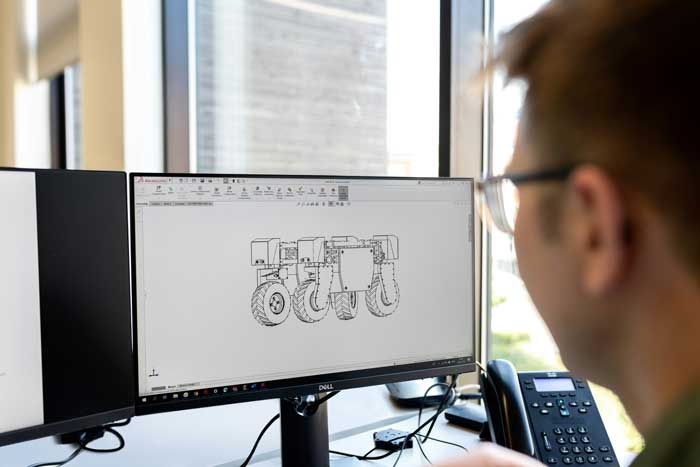Daily allowances (per diem) are reimbursements you pay as an employer to cover the increased cost of living for employees during business travel. They typically compensate for food, lodging, and incidental expenses.
Temporary Employment or Assignments at a Different Location for Max One Month
As of January 1, 2022, simplified tax exemption rules apply to temporary work and secondments. If someone takes a temporary position or assignment in a different location for a maximum of one month, they may deduct additional living expenses in the same way as during a business trip.
The workplace must be at least 50 km from the employee’s home, and the assignment must be intended to last no more than one month. If the duration is undefined or intended to be longer, the rules do not apply.
If the conditions are met, you as an employer may pay per diem and travel reimbursements tax-free, as with business travel. You do not need to deduct tax or pay employer contributions on these reimbursements.
What Is a Cost Reimbursement?
A cost reimbursement is a compensation in addition to wages that covers specific work-related expenses incurred by the employee.
Such allowances may be tax-exempt if paid under certain conditions. Per diem and mileage reimbursements up to standard rates are examples of tax-free benefits.
If you pay reimbursements exceeding standard limits, the excess must be treated as taxable income—meaning you must deduct tax and pay social contributions on that portion.
Conditions for Tax-Exempt Reimbursements
To qualify for tax exemption, the following three conditions must be met:
- The employee undertakes a business trip with overnight stay more than 50 km away from their usual place of work and residence
- The amount paid does not exceed the standard daily allowance rates for domestic or international travel
- You as employer have documentation, e.g., a travel expense report, detailing the business trip
- Your right to pay reimbursements tax-free is linked to the employee’s right to make deductions
👉 Swedish Tax Agency: Reimbursements and Silent Offsetting (in Swedish)
👉 Swedish Tax Agency: What Is Business Travel? (in Swedish)
Mileage Reimbursement
If employees use their private car for business travel, you may pay them a tax-free mileage allowance of 18.50 SEK per Swedish mile (10 km).
If the employee drives a company car and pays for all the fuel themselves, the tax-free reimbursement is:
- 6.50 SEK/mile for diesel
- 9.50 SEK/mile for other fuels like gasoline, electricity, or ethanol
If public transport is used, you can reimburse the actual cost.
👉 More info on travel expense reimbursements (in Swedish)
What Are the Standard Tax-Free Allowance Rates?
The standard amounts vary depending on the travel duration and whether the trip is domestic or abroad.
Definitions:
- Full day – Departure before 12:00 and return after 19:00
- Half day – Departure after 12:00 or return before 19:00
- Night schedule – Travel between 00:00 and 06:00
Domestic Travel
International Travel
👉 Full list by country (in Swedish)
Reduced Allowance If Employer Pays for Meals
If you pay for your employee’s meals during a business trip, the allowance must be reduced since the employee did not incur additional food costs. This also affects the tax deduction.
👉 When Should the Allowance Be Reduced and Taxed? (in Swedish)
Summary of Rules for Meal Benefits During Business Travel
👉 More details on reductions (in Swedish)
Allowance Reduction – Domestic Travel
* The 30% deduction applies to people who did not receive an allowance but are claiming deductions for business travel exceeding three months or for double housing.










